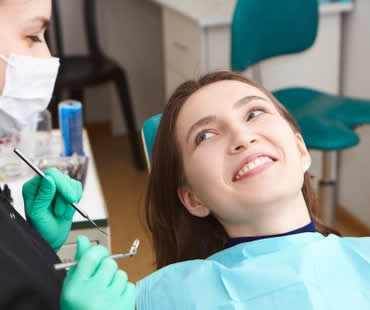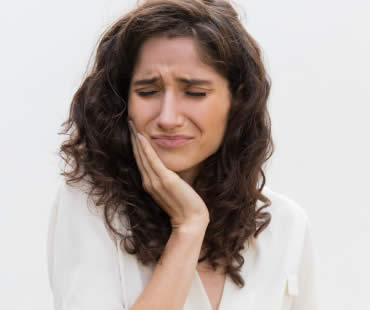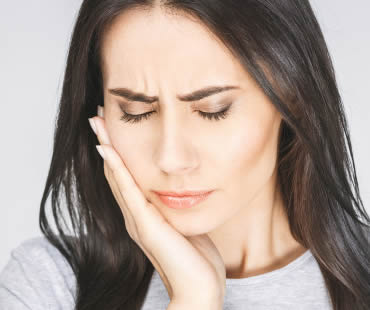
Dec 12, 2024 | Blog, Dental Information, Dental Topics 3
For many years, dentists removed cavities and filled them with metal amalgams. Traditional metal fillings are less expensive and were often the first choice for fixing damaged teeth. Recently, composite resin fillings have become the top method for restoring smiles. Ultimately, the decision rests with the patient; however, many dentists have moved to placing only composite fillings.
Silver fillings actually weaken the natural tooth structure, although they do repair the decayed area. As well, metal fillings contain mercury, which can become toxic in large doses. Metal fillings can expand, contract, or leak from wear over time. In many cases, they also darken with age.
Tinted to match natural teeth, composite resin fillings preserve your bright, white image. With composite resin fillings, less tooth area needs to be removed, which keeps as much of your original tooth in tact as possible. Because tooth-colored fillings actually bond to the tooth, you don’t have to worry about these restorations changing shape or cracking.
To place a composite restoration, your dentist will clean out the decay and prepare the tooth. Then, the doctor will fill the area with the composite material. With a special curing light, your dentist hardens the filling and polishes the tooth.
When you have metal fillings, check with your dentist and request an evaluation of their stability. Some people choose to replace amalgam fillings because of the way they look. If your old fillings develop additional decay or fracture, you will need to have the restorations repaired in order to restore the tooth.
Schedule a dental cleaning appointment today at our Bingham Farms dentists office.

Dec 5, 2024 | Blog, Dental Information, Dental Topics 3
You wake up in the middle of the night to a throbbing sensation in your tooth. Tooth decay or an abscess usually causes this kind of pain. You will need to see a dentist as soon as possible to resolve the issue. But if you experience signs of a true dental emergency, contact your dentist right away.
Until you can get an appointment, you can try some of these home remedies to help ease some discomfort:
- Apply an over-the-counter oral analgesic ointment to temporarily numb the area.
- Look to see if food could be trapped between teeth and causing pressure. If so, dental floss can remove the irritant and you can rinse the area with warm water.
- Mix bay berry bark with vinegar and apply the paste to the aching tooth.
- Place a wet, black tea bag on your gums to relieve soreness; this may also help stop any bleeding.
- Crush a piece of garlic clove and place it on the affected tooth. Garlic is a natural antiseptic and pain reliever.
- For pain in your gums, try applying an ice pack against the side of the face. Switch to heat if cold doesn’t help. Apply a hot compress and gargle with warm salt water.
- Take an over-the-counter pain reliever such as ibuprofen or acetaminophen, but don’t choose aspirin. If you need to have a dental procedure done, aspirin can increase bleeding.
- Use cotton swab to put oil of cloves on the aching tooth every 20 minutes.
Take the first step towards optimal oral hygiene. Reserve your dental appointment at our Bingham Farms dental office now and experience personalized care.

Nov 21, 2024 | Blog, Dental Information, Dental Topics 3
Depending on the degree of gum disease you have been diagnosed with, treatment can vary extensively. It can range from having a regular teeth cleaning and paying more attention to dental hygiene, to complex and often painful surgery. If you’ve been told you have a problem with your gums, seek treatment immediately.
Your dentist will perform a gum exam to decide the best treatment plan. This includes measuring the gum pockets around your teeth, noting inflammation, and checking gum recession. If gum pockets are extensive, it may mean you have bone loss. In that case, your dentist might refer you to a gum specialist called a periodontist.
Gingivitis is the earliest stage of gum disease. All that may be required is a thorough professional cleaning, better oral hygiene, consistent checkups, and allowing time for gums to heal. If gum problems have advanced, a deeper professional cleaning called scaling and root planning may be needed. Medications might be prescribed to treat infection. If the areas don’t respond to these treatments, gum surgery can be performed to remove diseased tissue, save the remaining gums and bone, and allow a better environment for good future oral health.
Receding gums sometimes are not severe enough for any treatment, but cosmetic concerns may warrant a gum graft procedure. It involves surgically removing tissue from another area of the mouth and grafting it onto the receded area. Another issue might be a gum abscess, which requires deep cleaning to remove diseased tissue and any pus that is present. Antibiotics will likely be needed for the infection. Once the abscess is cleared, further treatment may be needed to avoid a recurrence.
As you can see, there are a variety of possible treatments depending upon the severity of your gum problems. Of course the best solution is to avoid gum issues in the first place by maintaining good oral hygiene and regular dental checkups.
Are dental issues holding you back? Take control of your oral health by booking an appointment with our experienced team at our Bingham Farms dental office.

Nov 14, 2024 | Blog, Dental Information, Dental Topics 3
When your tooth pulp that is located in the center of each of your teeth becomes damaged or infected, the best way to save the tooth is to have root canal therapy. This safe and effective treatment is not as painful as its reputation, and should not be avoided. Watching for signs that your tooth pulp has been compromised is an important step in saving your tooth, so that treatment may be performed before your condition becomes too advanced.
There are not always signs associated with a tooth that requires root canal therapy. Sometimes only examination, X-rays, and other tests will reveal problems. This is one reason regular dental visits are important. In other cases, symptoms are present to indicate pulp damage. Some typical signs include:
- Pain that is often related to inflamed tooth pulp, which can be caused by deep decay, chipped or cracked teeth, repeated dental procedures, faulty crowns, infection, tooth grinding, or periodontitis. Inflammation increases pressure inside the pulp cavity and triggers the tooth’s nerves. The pain may be in the tooth itself, or it can be referred to other areas in your mouth. Pain when eating or sensitivity to hot or cold is also common.
- Gum swelling near the damaged tooth
- Facial swelling
- Tooth loosening
- Pus around the damaged tooth
- Tooth discoloration, which usually occurs over a longer period of time. Discoloration can take weeks, months, or years to appear. This is another reason for regular dental checkups.
If you experience any of the symptoms above, or if your dentist identifies problems upon examination, it’s time to consider root canal therapy. Saving your natural tooth is almost always better than having to replace a lost tooth. Root canal therapy can help you keep your smile intact, as well as its function. Your natural sensations of a real tooth remain, as well as normal biting abilities. Don’t shy away from treatment; take care of tooth pulp problems when they arise.
Take the first step towards a confident smile. Contact our Bingham Farms dental office to schedule your consultation!

Oct 3, 2024 | Blog, Dental Information, Dental Topics 3
Once you have had dental implants surgically placed, you will want to follow some important care tips to ensure their long-term success. With proper care, dental implants can last a lifetime, so it’s exceptionally important to adhere to the instructions provided by your dentist and guidelines like these:
- Follow a vigilant routine of brushing and flossing thoroughly at least twice per day to eliminate the plaque that can cause periodontal disease, which is a leading cause of implant failure.
-
- Consult with your dentist about the type and use of special toothbrushes or oral irrigation devices that can help with the additional removal of food debris or plaque that builds up around the implant areas.
-
- Visit your dentist approximately every three months for the first year after implant surgery, and then every six months for the duration of your implants.
-
- If you are also wearing an implant supported denture, seek additional guidance from your dentist about the placement and removal of your denture to prevent damage to the implant.
-
- Refrain from applying excessive pressure or chewing on hard foods that could cause damage to the implant area. Patients who suffer from bruxism (teeth grinding) should consider being fitted for a night guard to protect the implants.
While the success rate of dental implants is high, implant failure can happen and normally results from infection, fracture, or damage to the nerves, teeth or blood vessels surrounding the implant. A successful implant patient who takes vigilant care of their teeth, gums, and implants can expect a full recovery and complication-free lifetime of beautiful, healthy smiles.
Are dental issues holding you back? Take control of your oral health by booking an appointment with our experienced team at our Bingham Farms dental office.

Sep 26, 2024 | Blog, Dental Information, Dental Topics 3
Having a teenager can be challenging. They have school work, multiple activities, and attitudes. This hectic time in life can also impact your teen’s dental health. Proper care and good oral hygiene will make sure that your teenager enjoys a lifetime of vibrant smiles.
• Encourage your teen to brush after each meal. Remind your son or daughter about the importance of flossing to remove plaque and promote gum health.
• Explain the consequences of not caring for your teeth, which can include bad breath, stains, and cavities.
• Make sure you stock up on the necessary supplies so that your teen has the right tools on hand. Purchase plenty of fluoride toothpaste, dental floss, and extra toothbrushes.
• Schedule regular checkups with the dentist. These appointments allow the dentist to assess your teen’s oral health and handle any problems right away.
• If your son or daughter has braces, get floss threaders from the orthodontist or buy them at the local drug store. Keep up with appointments for adjustments so that your teen’s treatment stays on track.
• For teens that play contact sports, including soccer, football, or volleyball, ask your dentist or orthodontist about a custom mouth guard. This oral appliance is designed to protect their teeth and mouth from potential injury.
• Limit your teen’s consumption of junk food by having health snacks like vegetables, fruits, and low fat dairy options readily available.
• Model good behavior. Showing that you believe oral health care matters will help your teen take your advice and warnings to heart.
Take the first step towards a confident smile. Contact our Bingham Farms dental office to schedule your consultation!






